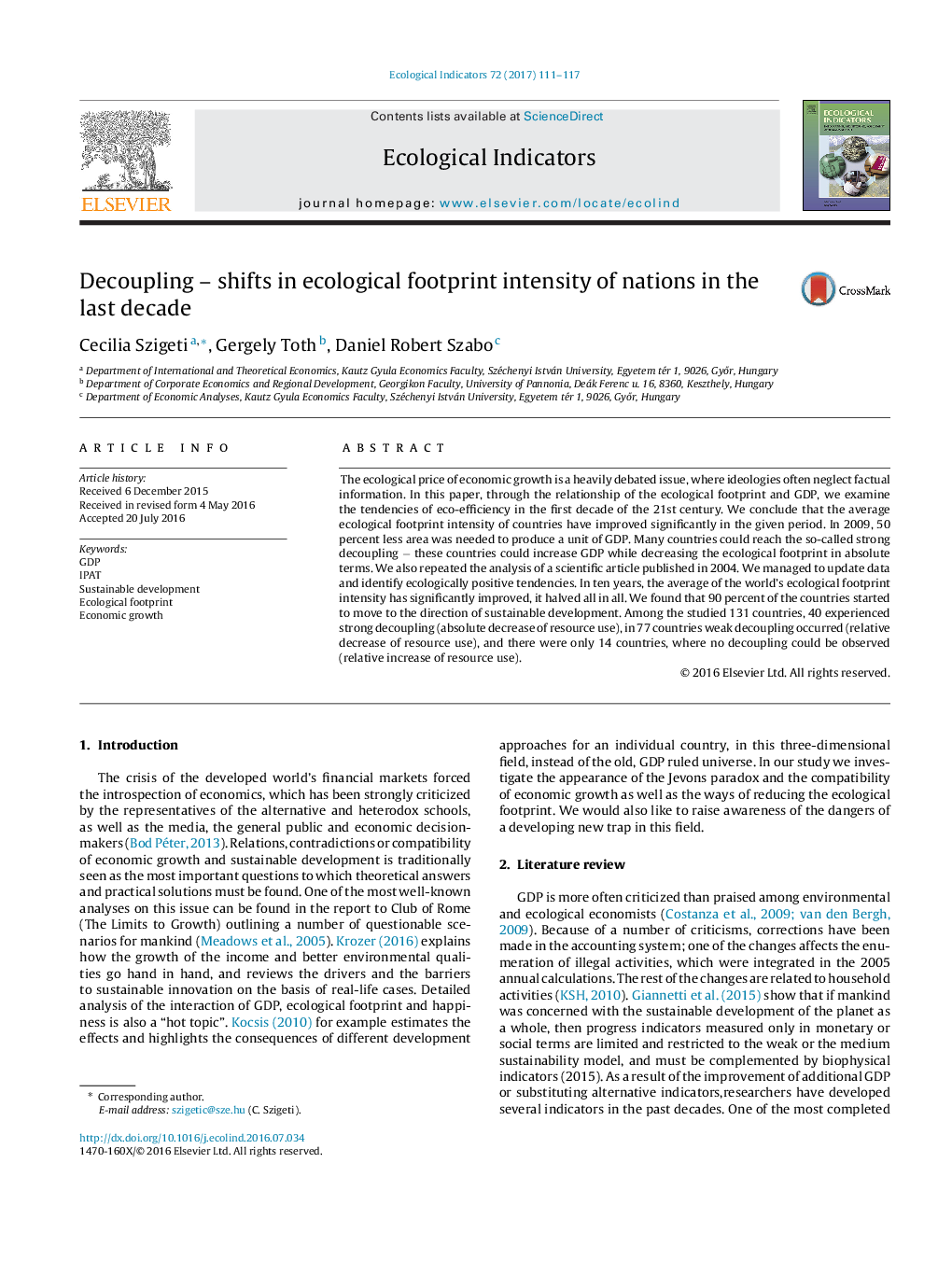| کد مقاله | کد نشریه | سال انتشار | مقاله انگلیسی | نسخه تمام متن |
|---|---|---|---|---|
| 6292720 | 1617130 | 2017 | 7 صفحه PDF | دانلود رایگان |
عنوان انگلیسی مقاله ISI
Decoupling - shifts in ecological footprint intensity of nations in the last decade
ترجمه فارسی عنوان
جداسازی - تغییر در شدت پس زمینه زیست محیطی ملل در دهه گذشته
دانلود مقاله + سفارش ترجمه
دانلود مقاله ISI انگلیسی
رایگان برای ایرانیان
کلمات کلیدی
موضوعات مرتبط
علوم زیستی و بیوفناوری
علوم کشاورزی و بیولوژیک
بوم شناسی، تکامل، رفتار و سامانه شناسی
چکیده انگلیسی
The ecological price of economic growth is a heavily debated issue, where ideologies often neglect factual information. In this paper, through the relationship of the ecological footprint and GDP, we examine the tendencies of eco-efficiency in the first decade of the 21st century. We conclude that the average ecological footprint intensity of countries have improved significantly in the given period. In 2009, 50 percent less area was needed to produce a unit of GDP. Many countries could reach the so-called strong decoupling â these countries could increase GDP while decreasing the ecological footprint in absolute terms. We also repeated the analysis of a scientific article published in 2004. We managed to update data and identify ecologically positive tendencies. In ten years, the average of the world's ecological footprint intensity has significantly improved, it halved all in all. We found that 90 percent of the countries started to move to the direction of sustainable development. Among the studied 131 countries, 40 experienced strong decoupling (absolute decrease of resource use), in 77 countries weak decoupling occurred (relative decrease of resource use), and there were only 14 countries, where no decoupling could be observed (relative increase of resource use).
ناشر
Database: Elsevier - ScienceDirect (ساینس دایرکت)
Journal: Ecological Indicators - Volume 72, January 2017, Pages 111-117
Journal: Ecological Indicators - Volume 72, January 2017, Pages 111-117
نویسندگان
Cecilia Szigeti, Gergely Toth, Daniel Robert Szabo,
